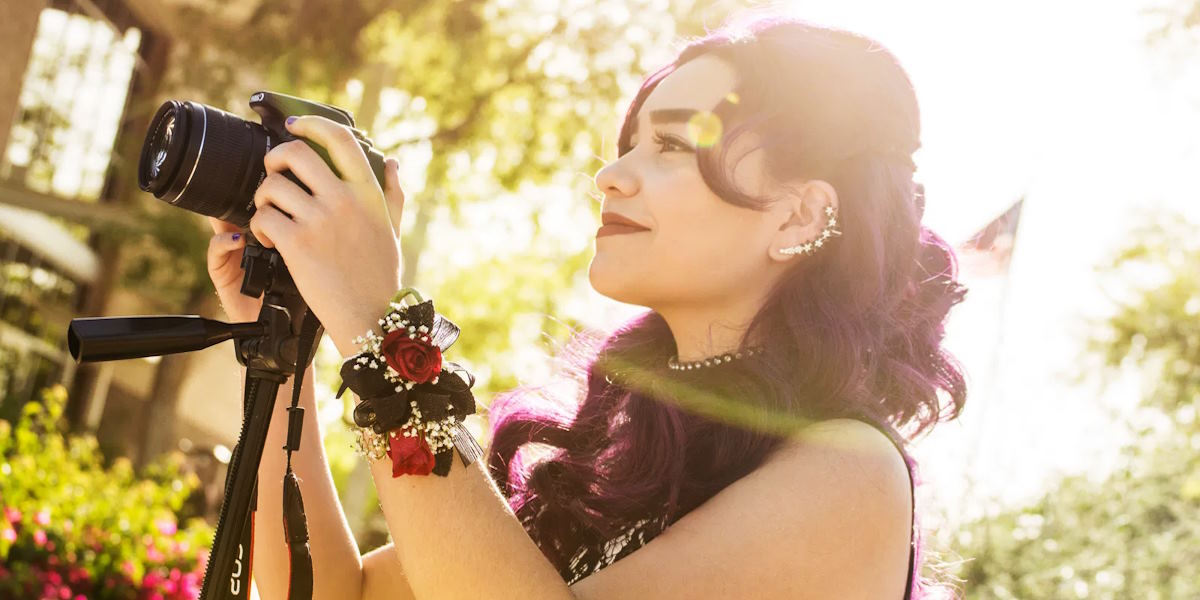Ever notice how the best photos often aren’t the ones where everyone’s posing? There’s something special about catching people mid-laugh, deep in conversation, or lost in thought. Candid photography brings out these raw, spontaneous moments that staged photos can’t quite capture. If you’ve ever wanted to take photos that feel as natural as the moments themselves, you’re in the right place.
The Right Gear for Candid Photography
Starting with the basics, having the right gear can make candid photography more enjoyable and productive. But don’t worry—this doesn’t mean you need the latest or most expensive equipment.
| Camera Type | Description | Why It Works for Candid Shots |
| DSLR or Mirrorless | High-quality photos, versatile in low light | Great for capturing details and emotions, even from afar |
| Compact Camera | Portable and quiet | Perfect for blending in, easy to carry around |
| Smartphone | Convenient, always with you | Ideal for spur-of-the-moment shots |
For lenses, a 35mm or 50mm prime lens is an excellent choice as they closely mimic the natural human perspective, making images feel more “real.” Zoom lenses, like a 24-70mm, are also handy if you want flexibility to capture from different distances without moving too much.
Blending In: How to Stay Unnoticed
One of the keys to capturing candid moments is to blend into the background. Imagine being at a family gathering and everyone suddenly realizes there’s a camera—instantly, they’re aware and start posing or acting differently. To avoid this, consider these tips for staying discreet:
- Dress to Blend In: Wear something that fits the event’s vibe. At a formal event, dress semi-formally, and at a casual gathering, keep it low-key. The less you stand out, the better!
- Move Slowly and Silently: Quick or sudden movements can draw attention. Move slowly, find a spot, and let the moments unfold around you.
- Don’t Hold the Camera to Your Face Constantly: Instead, keep it at your side or chest until you’re ready to shoot. When people see you constantly aiming, they become more self-conscious.
Think of yourself as a quiet observer, like a “fly on the wall” that watches without interfering. By blending in, people forget the camera, allowing you to capture genuine emotions.
Reading the Room: Spotting Moments Before They Happen
Anticipating moments before they occur is like reading a book just before the big reveal—you have to sense what’s coming. Good candid photographers develop a knack for reading body language, which helps them spot moments before they fully unfold. Here’s how to get better at this skill:
- Observe Facial Expressions and Movements: Is someone’s smile starting to break into laughter? Or are friends leaning into each other, hinting at a hug? Catching these lead-up moments results in more authentic photos.
- Identify Groups with Energy and Emotion: Focus on kids playing, a group deep in conversation, or people excitedly greeting each other. These often produce the best candid shots.
- Look for “Micro-Moments”: Sometimes, the smallest gestures—like a quick glance or hand touch—can tell a huge story. These micro-moments can be powerful, especially in emotional events like weddings.
In a sense, reading the room is like listening closely to music and catching the beat before the drum hits. By anticipating, you’re ready to capture moments others might miss.
Using Natural Light and Environment
One of the best things about candid photography is that it doesn’t usually require flashes or artificial lighting. Relying on natural light gives a warm, authentic feel to the photos, but you’ll need to adjust based on the lighting conditions.
| Lighting Condition | Technique | Tips |
| Bright Sunlight | Position subjects with back to the sun | Use soft, indirect light, avoid shadows |
| Indoor Lighting (Low Light) | Increase ISO, open the aperture | Use window light if available |
| Golden Hour (sunrise/set) | Capture warm tones and soft shadows | Perfect for outdoor gatherings |
The goal is to use light creatively without making it obvious that lighting was manipulated. When working indoors, find natural light sources like windows. Outdoors, use golden hour lighting (sunrise or sunset) for beautiful, warm hues that enhance the mood of the photo.





 Shirley combines her love for photography and design to curate a blog that inspires creativity in every frame. From event planning ideas to capturing candid moments, she covers it all. Shirley’s artistic vision encourages her readers to find and celebrate beauty in both everyday and extraordinary occasions.
Shirley combines her love for photography and design to curate a blog that inspires creativity in every frame. From event planning ideas to capturing candid moments, she covers it all. Shirley’s artistic vision encourages her readers to find and celebrate beauty in both everyday and extraordinary occasions.